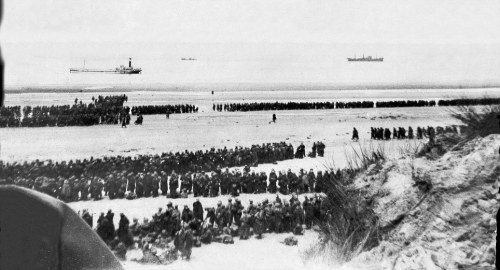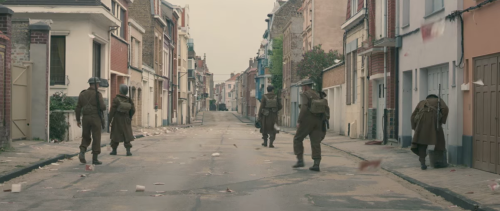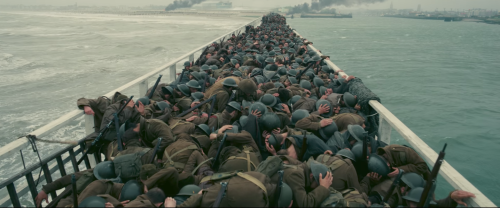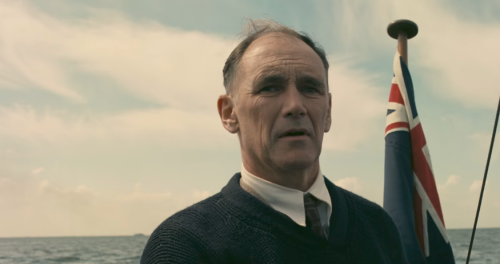In the tenth standard, we had an entire chapter dedicated to the Second World War. Amongst the several terribly written paragraphs, there were only three lines about Dunkirk’s famous retreat. Our professor had read them out verbatim to us without elaborating on any of them, without sharing any explanation about why the incident was important and had told us to underline one of the three lines. The line as I remember clearly was – Winston Churchill called the Dunkirk retreat a ‘miracle of deliverance’. He reminded us it would come as a ‘fill in the blank’ in the exam and that was that. All I knew about Dunkirk’s evacuation was that single fill in the blank.

I walked out of Christopher Nolan’s ‘Dunkirk’ yesterday feeling cheated out of a history lesson in my school days. The movie is an exhausting watch and I recommend you see it as it’s meant to be, not on a digital platform, not on your laptops, but in a cinema hall; preferable IMAX. It’s one of the most haunting, involving films I’ve seen in a while and judging by the number of people who had their hands over their mouths in graphic horror shortly before the unnecessary interval, I wasn’t the only person who felt like an eyewitness to the entire tale.
In many ways, most of great war films are remembered for the human story behind them. Saving Private Ryan, Paths of Glory (my personal favourite), The Bridge on the River Kwai, Even Band of Brothers (which follows Easy Company from England to Germany) concentrate on the personal story of the soldiers behind the larger incident. In Dukirk’s case, I felt strangely detached from the characters. Nolan doesn’t offer you the time to build a connect with any of his ensemble, swiftly intercutting between the air, sea and land in three non-linear timelines to maintain the feeling of constant danger and panic at a high point right from the very beginning. That I feel, is the heart of why the film works so well, what makes it a ‘Nolan’ film, because we’re effectively watching what’s supposed to be an hour in the sky, a week of land survival and roughly a night of sea battle cut with the same degree of importance. Failure during any of these time periods has only one eventuality – certain death.
The film begins with an empty street in Dunkirk, propaganda posters falling silently through the air while British soldiers carefully make their way through. Hans Zimmer’s eerie notes almost preempt the start of violence, a constant pattern through the film, with each segment like a mini-movie within itself. Four of the Brits are gunned down by Germans, leaving Fionn Whitefield the only survivor; as he bolts into French barricades before heading to the ships. Whitefield, Aneurin Barnard and Harry Styles lead the subplot on the ships, as they hopelessly try to survive till aid reaches. Nolan never cuts to the Germans, he never at any point intercuts to who is firing from the ground, or inside their cockpits, or for the matter within the confines of their U-boats. We never see a single German face, or hear the word ‘Nazi’. The only interaction a viewer has with the German army is direct onslaught. This constant presence of a faceless enemy is disconcerting to watch, because there’s no predictability in their attack. As a viewer you experience it only at the moment the Brits do.

Nolan’s mastery grasp over technique is indisputable. The film belongs to his crew just as much as it belongs to him. The flight shots, which are some of the most minimalistic and surreal shots I’ve seen in a war film work in complete antithesis to the chaotic mess soldiers on the ground are in. Hoyte Van Hoytema’s raw camera comes closest to virtual reality; working in tandem with Zimmer’s unique, jarring soundtrack. It works up a crescendo in every sequence slowly, building up a gradual fear arcing to panic. Nolan’s erraticness of action, his decision to actually show how random war is and the absolute uncertainty of who/what will be hit next, who will have an upper hand, who will luck favour in the next five minutes is what keeps you on the edge of your seat
In a scene where a torpedo strikes one of the rescue ships, soldiers have just been fed warm tea and bread and are totally off guard. The resultant feeling of suffocation, as water bursts into the chamber is so intense, so sudden that you barely get time to adjust to it, to tell yourself that it’s happening on screen. Unlike a lot of directors, Nolan allows these moments of strike to play in wides without cutting to the actual projectile detonating. He makes sure one gets to view the chain reaction of soldiers reacting to a threat, never letting you know where exactly the damage will happen. He emphasises how much luck dictates survival in a war.


Tom Hardy’s entire portion in the air is almost like a reprise of his stellar work in Locke, as he powers through a third of a movie with just his eyes and his voice. You’d think that as the biggest star in the film, he’d be given more coverage. That it would be logical to show his narrative as the most important. Nolan doesn’t do that. He treats him as an equal to the rest of his characters. His soldiers are kids. They aren’t older men playing younger parts, they’re actually young.
To me the film belongs to Mark Rylance, who plays a British civilian sailor representative of the hordes of non-navy personally called to bail out the troops from the beach. There’s a strange inevitability of having accepted impending doom in his demeanour to try and help his country. Yet, his character is as much of a fighter as any of the troops. His storyline is a constant reminder through the film that its theme isn’t about war, but about survival and to me, that’s what makes Dunkirk unique. None of the soldiers in the film are looking out for the romanticised glory so typical of war films. They want to go home. They can see England from where they are and they’re willing to do anything they can to cross and reach there.

Above: Mark Rylance playing Mr. Dawson.
Nolan’s the first director whose work I fell in love with in college. He was a posterboy for films we wanted to direct in our first year. There were a countless others like me. We all wanted to make a film where the top continues spinning in the end. We all fell in love with the ambiguity of his endings, the idea that we don’t owe our watchers an explanation to a concrete resolution. We also grew out of it, eventually coming to terms that his films do have flaws, and that aping the style of someone whose intentions you don’t understand isn’t the wisest thing to do. Dunkirk takes me back to the days where I was blown away by the audacity of what he was doing on stage. It’s not the greatest war movie ever made, but it’s certainly a modern masterpiece. Watch it in the theatres please! You’re going to be making a very, very strong long time memory.
_____________________________________________________________________________________
